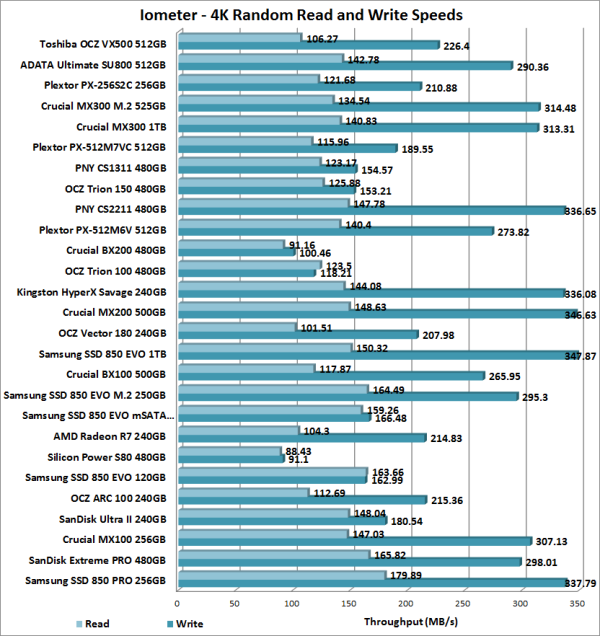Anvil's Storage Utilities:
Anvil's Storage Utilities is another benchmark designed with SSDs in mind. The standard storage benchmark measures a drive's performance by testing its transfer speeds, access times and IOPS.

Iometer:
Lastly, I ran a series of tests using Iometer. This tool can be configured to benchmark a number of things. In this case, I used it to measure the VX500's read and write speeds and the number of operations per second. The tests were run using random bytes and a queue depth of 3.

The VX500's performance was very similar to what we saw in our other tests. The drive was able to read at 528.61 MB/s and write at 499.48 MB/s.

The VX500 wasn't one of the faster drives we've tested when it came to random reads and writes. In our tests, the drive was able to read at 106.27 MB/s and write at 226.40 MB/s.

According to Toshiba, the 512GB version of the VX500 is capable of 92,000 IOPS when reading and 64,000 IOPS when writing 4K blocks. In our tests, the drive reached 27,205 random read IOPS and 57,958 random write IOPS. Increasing the queue depth had little impact on the VX500's random write performance. However, with the queue depth set to 32, the drive was able to reach 94,704 random read IOPS.

